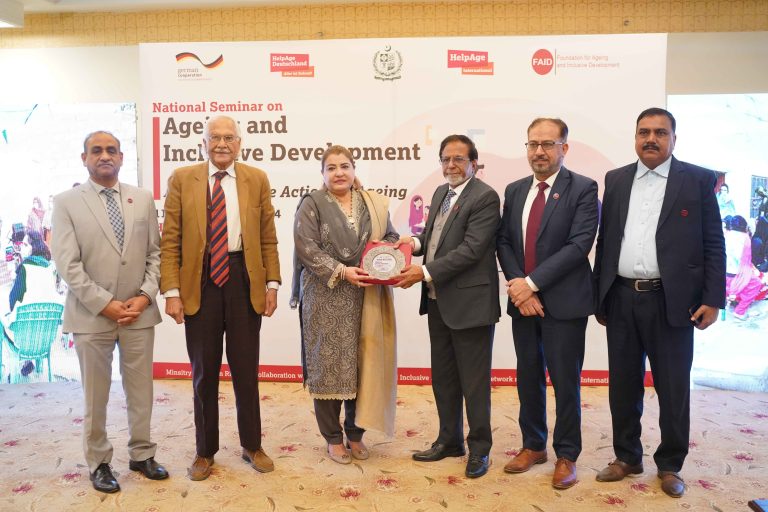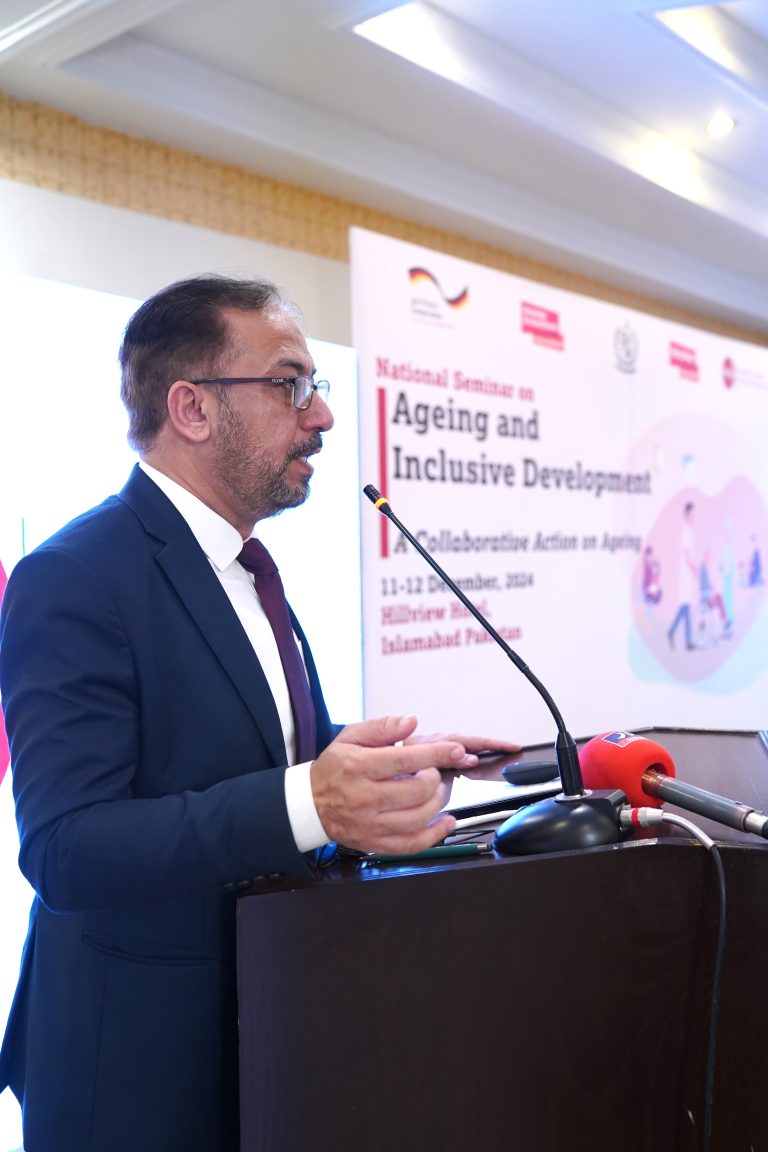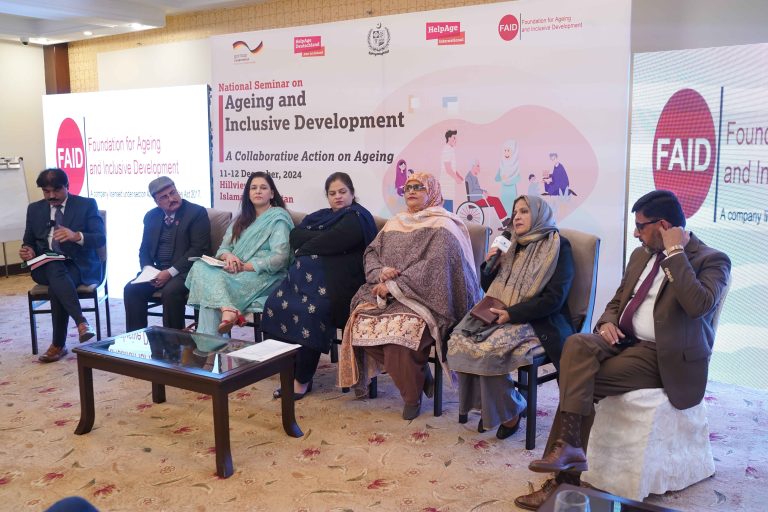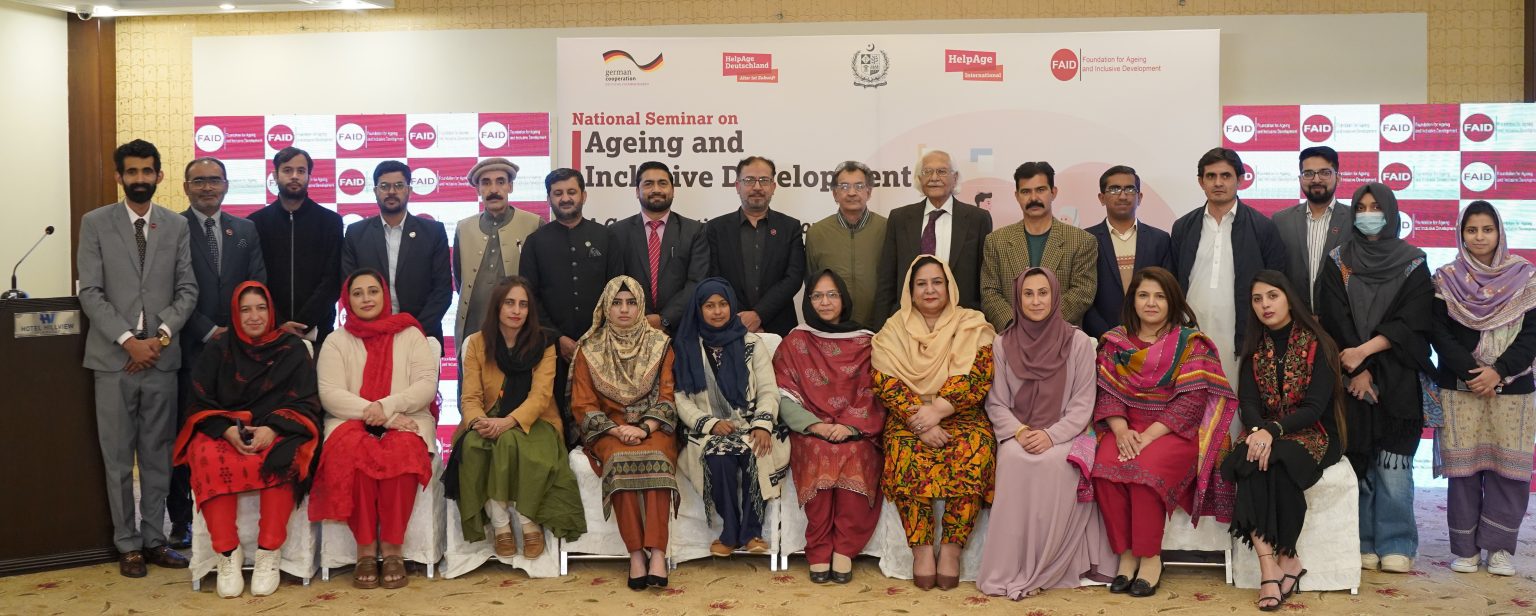National Seminar on Ageing and Inclusive Development Highlights Innovations, Policies, and Social Protection

Islamabad, Pakistan – December 11-12, 2024: A landmark two-day National Seminar on Ageing and Inclusive Development was held in Islamabad, organized by the Ministry of Human Rights in collaboration with the Foundation for Ageing and Inclusive Development (FAID). The seminar brought together policymakers, healthcare professionals, researchers, and civil society representatives to address the challenges faced by Pakistan’s ageing population and explore innovative and policy-driven solutions.
The seminar opened with remarks by Syed Moeez Kakakhail, CEO of FAID, who underscored the importance of collaborative action to secure the dignity, health, and inclusion of older people in Pakistan. Chief Guest Ms. Saba Sadiq, Parliamentary Secretary at the Ministry of Human Rights, highlighted government initiatives, including dedicated wards for senior citizens in federal hospitals, and pledged continued support for this cause.

Arif Shamim, Director General (Development) at the Ministry, announced plans for a state-of-the-art old age home in Islamabad, reinforcing the government’s commitment to care for older citizens.
A significant session featured Shahzado Khaskheli, Head of Programs at FAID, who presented on the role of technological innovations in healthcare. He highlighted examples from around the globe, such as telemedicine platforms and wearable health devices, and stressed the need for similar advancements in Pakistan.
During the session, Mr. Sajjad Hussain Shah, Program Coordinator at FAID, introduced the newly launched Resource Center on Ageing and Inclusion, a digital platform aimed at advancing research and advocacy on ageing. The platform will house comprehensive data to support academicians, health professionals, and students in conducting research on ageing-related issues. Mr. Shah described it as a groundbreaking initiative that will serve as a knowledge hub for stakeholders working on ageing in Pakistan.
The day concluded with an urgent call to action: establish a senior citizen fund to finance healthcare and other essential services, and implement awareness campaigns on the care of older people in educational institutions and mass media.
A lively panel discussion on Senior Citizen Acts and Geriatric Care brought together prominent voices, including Ms. Musarrat Rani, a seasoned health expert; Mr. Ayyaz Ahmad, Director of the Drug Regulatory Authority of Pakistan (DRAP); and Dr. Irum Naveed, Deputy Executive Director of PIMS Hospital. Moderated by Dr. Muhammad Arif of the Ministry of Human Rights, the discussion explored how to integrate geriatric care into Pakistan’s medical education system. Panelists urged collaboration between the Ministry, FAID, and the Planning Commission to launch targeted capacity-building programs.

The second day delved into federal and provincial efforts to implement Senior Citizen Acts. Presentations by representatives from the Ministry of Human Rights, Ministry of Health, Ministry of Poverty Alleviation, and Ministry of Planning highlighted key achievements and challenges in advancing policies for older people.
Provincial social welfare departments shared their experiences, best practices, and challenges in implementing ageing-related policies.
A key moment was the launch of FAID’s study on Social Protection of Older People in Pakistan. The study analyzed three flagship programs—BISP (Benazir Income Support Program), Sehat Sahulat Card, and Ba Himat Buzurg Program—offering insights into their impact and areas for improvement. During the session, Mr. Arshad, CEO of the Sehat Sahulat Program, praised the study and shared strategies to enhance healthcare access for older people. CEO Punjab Social Protection Authority – Ba Himat Buzurg Program, Ali Shahzad and BISP Deputy Director also provided valuable input, emphasizing the need for inclusive social protection measures.
Throughout the seminar, speakers and panelists called for strengthened collaboration among federal and provincial governments, civil society, and the private sector to ensure comprehensive care for older people. The event concluded with the distribution of shields to contributors and a group photo, symbolizing the collective commitment to making ageing and inclusive development a national priority.
With 13.5 million older people in Pakistan, this seminar served as a timely reminder of the urgent need for innovative policies, inclusive programs, and sustained advocacy to address the unique challenges of ageing.


